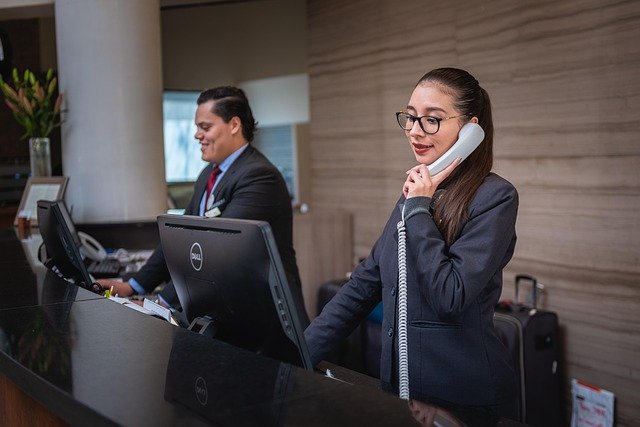Your Guide to Hotel Housekeeping Training and Career Opportunities
Hotel housekeeping plays a vital role in shaping a guest’s overall experience, and proper training is the foundation for success in this fast-paced environment. This guide offers an inside look at how structured housekeeping training supports not only cleanliness and safety standards, but also team confidence and operational quality—key elements for those exploring opportunities in this essential hospitality role.

What does hotel housekeeping training typically involve?
Hotel housekeeping training is a comprehensive process that covers various aspects of the job. It typically includes instruction on cleaning techniques, proper use of equipment and chemicals, room presentation standards, and time management skills. Trainees learn about different types of rooms and how to clean them efficiently, as well as the importance of attention to detail in creating a positive guest experience. Many programs also incorporate customer service training, teaching housekeepers how to interact professionally with guests and handle special requests or complaints.
How long does it take to complete housekeeping certification programs?
The duration of housekeeping certification programs can vary widely depending on the institution and the depth of the curriculum. Some short-term programs may be completed in as little as a few weeks, while more comprehensive courses can take several months. For example, a basic hotel housekeeping certificate might be earned in 4-6 weeks of full-time study, covering essential skills and knowledge. More advanced certifications, which may include management training or specialized skills, could take 3-6 months to complete.
What are the key skills taught in hospitality training courses?
Hospitality training courses, including those focused on housekeeping, aim to develop a wide range of skills essential for success in the industry. Some of the key skills taught include:
-
Cleaning and sanitation techniques
-
Time management and efficiency
-
Attention to detail
-
Customer service and communication
-
Safety and security procedures
-
Inventory management
-
Basic maintenance and troubleshooting
-
Teamwork and collaboration
-
Adaptability and problem-solving
-
Understanding of hospitality standards and regulations
These skills are crucial for ensuring high-quality service and maintaining the reputation of the hotel or hospitality establishment.
What are the career advancement opportunities in hotel housekeeping?
Hotel housekeeping offers various career advancement opportunities for those who excel in their roles and continue to develop their skills. Entry-level positions such as room attendants or housekeepers can progress to roles like:
-
Senior Housekeeper or Team Leader
-
Floor Supervisor
-
Assistant Executive Housekeeper
-
Executive Housekeeper
-
Housekeeping Manager
-
Director of Housekeeping
With additional education and experience, some may even advance to broader hospitality management positions. Many hotels and resorts offer internal training programs and support for employees looking to grow within the organization, making housekeeping an excellent starting point for a long-term career in hospitality.
What unique challenges do housekeeping professionals face?
Housekeeping professionals encounter a unique set of challenges in their daily work. The job is physically demanding, requiring stamina and the ability to perform repetitive tasks efficiently. Time management is crucial, as housekeepers often work under tight deadlines to prepare rooms for incoming guests. They must maintain a high level of attention to detail while working quickly, ensuring that no aspect of room cleanliness is overlooked.
Additionally, housekeepers may face unexpected situations, such as difficult stains, damaged furniture, or guest complaints, requiring quick thinking and problem-solving skills. The role also demands emotional intelligence, as housekeepers must maintain a positive attitude and professional demeanor even in stressful situations or when dealing with challenging guests.
How can one find reputable hotel housekeeping training programs?
Finding reputable hotel housekeeping training programs requires some research and consideration of various factors. Here are some options to explore:
| Provider | Type of Training | Key Features |
|---|---|---|
| American Hotel & Lodging Educational Institute | Certification Programs | Industry-recognized certifications, online and in-person options |
| Community Colleges | Vocational Courses | Affordable, hands-on training, often with local industry connections |
| Hotel Chains (e.g., Marriott, Hilton) | In-house Training | Job-specific skills, potential for immediate employment, brand standards |
| Online Platforms (e.g., Coursera, edX) | Self-paced Courses | Flexible scheduling, wide range of topics, certificates of completion |
| Local Workforce Development Centers | Job Training Programs | Often free or low-cost, focus on employability skills |
When selecting a program, consider factors such as accreditation, industry recognition, practical experience opportunities, and job placement assistance. It’s also beneficial to look for programs that offer a combination of theoretical knowledge and hands-on practice to ensure comprehensive skill development.
In conclusion, hotel housekeeping training is a crucial step for anyone looking to start or advance their career in the hospitality industry. With the right combination of formal education, practical experience, and ongoing skill development, housekeeping professionals can build rewarding careers that offer both stability and growth opportunities. As the hospitality industry continues to evolve, well-trained housekeeping staff will remain essential to ensuring guest satisfaction and operational excellence in hotels worldwide.




